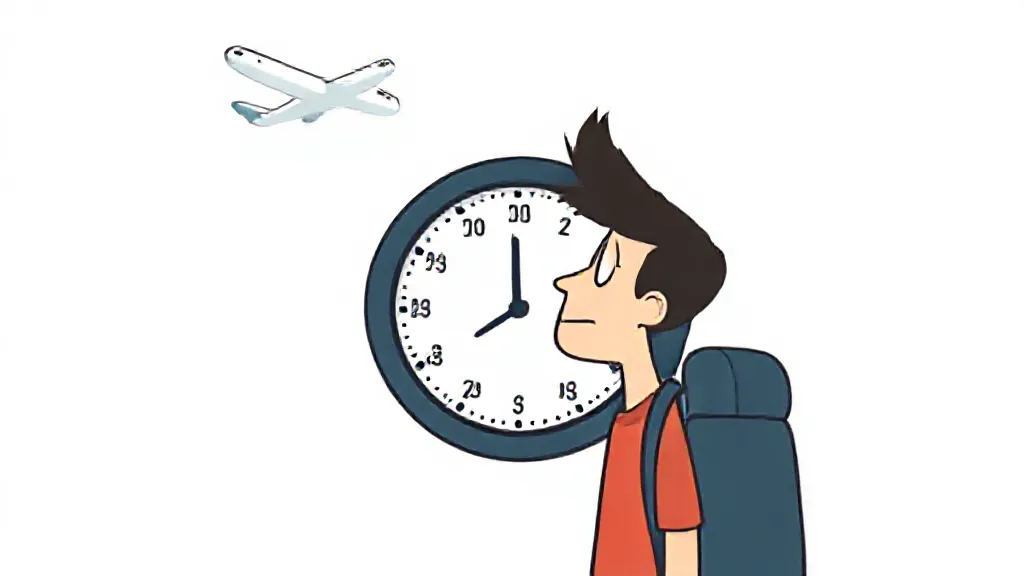Jet lag is a temporary sleep disorder that occurs when a person travels across multiple time zones, resulting in a misalignment between their internal biological clock and the local time. This phenomenon is particularly common among frequent flyers and international travelers, affecting their ability to adapt to new time zones. The primary cause of jet lag is the disruption of circadian rhythms, which are the natural cycles that regulate sleep, wakefulness, and other physiological processes in the body.
Understanding jet lag requires a deep dive into the science of circadian rhythms and how they interact with environmental cues.
The Science of Circadian Rhythms
Circadian rhythms are 24-hour cycles that are influenced by external factors such as light and temperature. The human body has an internal clock, located in the suprachiasmatic nucleus (SCN) of the hypothalamus, which helps regulate these rhythms.
When a person travels across time zones, their internal clock may remain aligned with their original time zone, causing a mismatch with the local time. This misalignment can lead to symptoms such as fatigue, insomnia, irritability, and difficulty concentrating. The severity of jet lag often depends on the number of time zones crossed and the direction of travel, with eastward flights generally causing more severe symptoms than westward ones.
Physiological Effects of Jet Lag
The physiological effects of jet lag extend beyond mere sleep disruption. Research has shown that jet lag can impact various bodily functions, including hormone production, metabolism, and immune response. For instance, melatonin, a hormone that regulates sleep-wake cycles, may be produced at inappropriate times when traveling across time zones, leading to difficulty falling asleep.
Furthermore, the stress of travel and changes in routine can exacerbate the symptoms of jet lag, making it essential for travelers to adopt strategies to mitigate its effects.
Psychological Impact of Jet Lag
In addition to its physical effects, jet lag can also have psychological consequences. Travelers may experience mood swings, anxiety, and decreased cognitive function due to the disruption of their normal sleep patterns.
Studies have shown that individuals suffering from jet lag are more likely to report feelings of depression and decreased overall well-being. This psychological impact can be particularly pronounced for business travelers who need to perform at their best shortly after arriving at their destination.
Strategies for Mitigating Jet Lag
To combat the effects of jet lag, travelers can adopt several strategies.
Gradually adjusting sleep schedules before departure, staying hydrated during the flight, and exposing oneself to natural light upon arrival can help ease the transition to a new time zone. Some travelers find that taking melatonin supplements can help regulate their sleep-wake cycles, although it is essential to consult a healthcare professional before starting any new supplement regimen.
Cultural and Historical Perspectives on Jet Lag
The phenomenon of jet lag is relatively modern, emerging with the advent of commercial air travel in the mid-20th century.
Historically, long-distance travel was limited to weeks or months, allowing travelers to adjust gradually to new time zones. The rapid pace of modern travel has changed this dynamic, making jet lag a common experience for many. Different cultures have developed various approaches to managing the effects of jet lag, from traditional herbal remedies to modern scientific interventions.
The Role of Technology in Managing Jet Lag
Advancements in technology have also played a role in how travelers manage jet lag. Apps and wearable devices can track sleep patterns and provide personalized recommendations for adjusting to new time zones. Furthermore, airlines are increasingly offering services that aim to minimize the impact of jet lag, such as optimizing flight schedules and providing in-flight wellness programs.
These innovations reflect a growing awareness of the importance of addressing jet lag as part of the travel experience.
Future Research Directions
As global travel continues to expand, research on jet lag and its effects is likely to grow. Future studies may focus on the long-term consequences of repeated jet lag exposure, particularly for frequent travelers and flight crew.
Understanding the genetic and environmental factors that contribute to individual differences in susceptibility to jet lag will also be crucial in developing effective strategies for prevention and treatment.
In conclusion, jet lag is a complex condition that arises from the interplay of biological, physiological, and psychological factors. By understanding its causes and effects, travelers can take proactive steps to mitigate its impact, leading to a more enjoyable and productive travel experience.
As science continues to uncover the intricacies of circadian rhythms and their role in our lives, the hope is that effective solutions for jet lag will become increasingly accessible.
